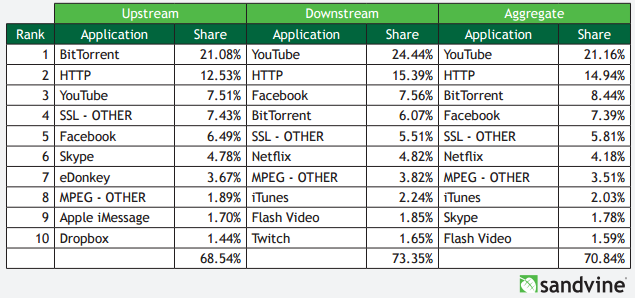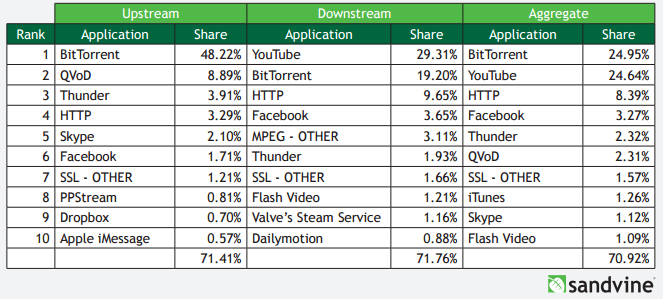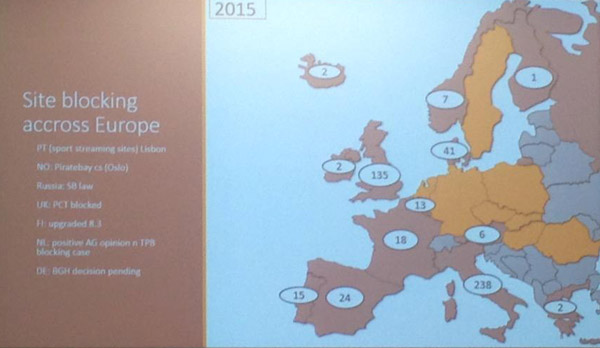 After failing in a last ditch attempt to have their extradition hearing delayed once again, next week Kim Dotcom and his former Megaupload colleagues will head off to the North Shore District Court to do battle with the United States.
After failing in a last ditch attempt to have their extradition hearing delayed once again, next week Kim Dotcom and his former Megaupload colleagues will head off to the North Shore District Court to do battle with the United States.
In addition to their already sizable team of legal representatives, Dotcom et al have been hiding somewhat of a trump card up their collective sleeves. Earlier today Kim Dotcom advised TF that none other than Harvard Law School’s Professor Lawrence Lessig had been retained to provide expertise in the hearing beginning next Monday.
In submissions filed today, Professor Lessig provides his expert legal opinion on the criminal allegations of the United States Department of Justice which support their efforts to extradite Kim Dotcom.
Step-by-step in a 38-page testimony, presidential candidate Lessig undermines the U.S. case at almost every turn. Beginning with copyright infringement (this is after all the biggest U.S. infringement case of all time), Lessig says that claims that the defendants themselves infringed are not supported by the facts presented in the case.
Copyright infringement
“A showing of willful criminal copyright infringement requires compact factual proof identifying a specific copyrighted work, a right of the owner that has been violated, the geographical location of the infringement and other specific facts needed to establish a violation of United States criminal law. Such compact facts are absent here,” the professor writes.
“The generalized accusations, defective and irrelevant allegations, scattered facts of alleged multiple infringements and statistics set forth in the Superseding Indictment and Record of the Case do not satisfy requirements of proof but rather manifest unreliability of the overall approach.”
Furthermore, Lessig says that three of the four counts are now outside the three-year statute of limitations provided by the US-NZ Extradition Treaty.
Like many before him, Professor Lessig also notes that the Department of Justice is attempting to charge the Megaupload defendants with a crime that does not even exist under U.S. law.
“Many allegations in the Superseding Indictment appear to attempt to allege secondary copyright infringement. Such allegations may be relevant in a civil
case alleging secondary infringement but they cannot be a basis for criminal charges of direct copyright infringement. Congress has never defined a crime of ‘secondary copyright infringement’,” Lessig writes.
“The Megaupload cloud service is a dual use technology capable of substantial non-infringing uses and thus protected by the ‘Sony Doctrine‘,” he adds. “Under civil copyright law, internet service providers, such as Megaupload, do not have a duty to investigate potential infringement.”
Conspiracy
Highlighting three counts of alleged conspiracy, Lessig homes in on one in particular – Conspiracy to Commit Copyright Infringement. The DoJ claims that the defendants conspired with users of Megaupload to commit copyright infringement but Lessig says the allegations are not supported by the facts.
“There is no showing of specific criminal ‘willful’ infringements committed by specific individual users. There is an even more serious lack of evidence of communications between respondents and such alleged users needed to prove an agreement that is subject to laws of conspiracy,” the professor explains.
“The United States Constitution prohibits the United States DOJ from prosecuting, as they apparently want to here, a new kind of criminal conspiracy based on defendants providing an ‘environment of infringement’ or their failing to disable all links to an allegedly infringing copy. Under the approach of the DOJ, many online operations and even individual persons would, without notice, suddenly become subject to criminal prosecution.
“General allegations of, ‘fostering an environment’ cannot substitute for the requisite agreement or for the necessary ‘willful’ mental state of the alleged conspirator,” Lessig notes.
Fraud by Wire and Aiding & Abetting Fraud by Wire
Several other counts allege fraud relating to the online abuse tool Megaupload provided to copyright holders for disabling infringing links to their works. The DoJ claims that Megaupload misled copyright holders into thinking that all links to a file would be removed, not just the specific links being reported.
“The DOJ appears to be asserting that an ISP like Megaupload, which receives copyright take down notices identifying one URL, must search for and delete all duplicate files used by different users in the cloud system or be subject to a copyright or fraud claim. In my opinion the DOJ’s novel theory of copyright or fraud liability is erroneous,” Lessig writes.
Commenting on Megaupload’s use of “data deduplication” techniques to reduce the numbers of files stored, Lessig says that while one use of a file might be infringing, others may not.
“It is possible for one uploader to have a right to fair use of a copy of a file, e.g., a purchaser uploading a backup or an educational organization offering critical commentary, while other uploaders might have no such fair use right,” he explains.
“It is contrary to the purpose of the DMCA that a fair use right would be violated through a take-down notice directed at another person’s wrongful use. If such a
violation were to occur, the provider of the take-notice would be subject to liability under the DMCA (17 U.S.C. § 512(f)).”
Lessig says that in his opinion the DoJ is attempting to use its “wire fraud” theory to criminalize “new categories of conduct” without Congressional authorization.
“Criminal charges based on alleged DMCA shortcomings would be contrary to DMCA principles stated by Congress. Wire fraud allegations further suffer from lack of requisite damages suffered by the victim of the fraud,” he writes.
Conclusion
In summary, Lessig says that the DoJ has failed to prove a case of direct civil copyright infringement or of criminal copyright infringement. Neither has it proven a case of criminal conspiracy or wire fraud. Overall, Lessig believes that the DoJ case is so weak that extradition for Dotcom et al will not be possible.
“It is my opinion that the Superseding Indictment and Record of the Case filed by the United States Department of Justice (DOJ) do not meet the requirements necessary to support a prima facie case that would be recognized by United States federal law and subject to the US – NZ Extradition Treaty,” Lessig writes.
“Insofar as they are alleged in the Superceding Indictment and the [Record of the Case], respondents’ actions were not prohibited by criminal statutes of the United States. Filings of the DOJ attempt to create a false impression of criminal guilt and are not reliable.”
Speaking with TorrentFreak, Megaupload lead global defense counsel Ira Rothken says that Lessig’s opinion is not only of great value to the current proceedings, but also to the wider Internet.
“We are pleased and honored to have an opinion from Professor Lessig, a top internet law scholar, concluding that U.S. criminal claims against Kim Dotcom lack merit,” Rothken told TF.
“The opinion not only supports Kim Dotcom but all netizens globally who provide or use automated dual use technologies like cloud storage.”
Kim Dotcom’s extradition hearing gets underway next week and Lessig’s expert opinion may yet prove priceless to the entrepreneur.
Source: TorrentFreak, for the latest info on copyright, file-sharing, torrent sites and ANONYMOUS VPN services.

 Over the years we have been following various reports on Internet traffic changes, specifically in relation to BitTorrent.
Over the years we have been following various reports on Internet traffic changes, specifically in relation to BitTorrent.

 Over the past several years Hollywood and its counterparts in the worldwide music industry have made huge strides in their efforts to complicate user access to so-called ‘pirate’ sites.
Over the past several years Hollywood and its counterparts in the worldwide music industry have made huge strides in their efforts to complicate user access to so-called ‘pirate’ sites.

 In the latter years of the previous decade a new idea for dealing with piracy was gathering momentum. Known as “three strikes” or “graduated response”, the system was based on the understanding that pirates could be persuaded to change their ways – if they believed they were being watched.
In the latter years of the previous decade a new idea for dealing with piracy was gathering momentum. Known as “three strikes” or “graduated response”, the system was based on the understanding that pirates could be persuaded to change their ways – if they believed they were being watched. After failing in a
After failing in a